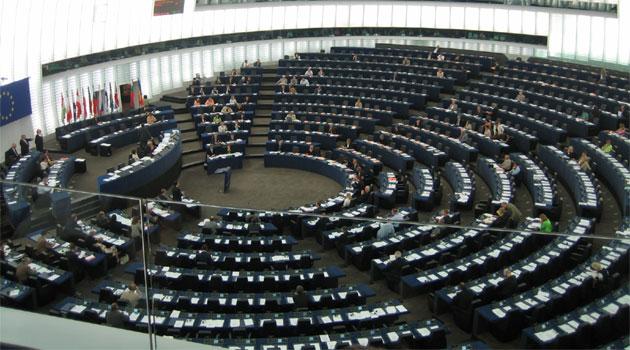AEDH calls on African and European leaders to put human rights at the center of migration policies

The European Association for the Defence of Human Rights (AEDH) issued the following press release today:
On 11 and 12 November 2015, European and African leaders (countries represented in the Rabat process and in the Khartoum process) will meet in Malta to discuss cooperation on migration.
No consideration has been given in this policy process to recommendations formulated by civil society organisations, which have been left aside of the Malta summit and of the establishment of migration policies in general, despite the effects of these policies on the lives, fundamental rights and mobility of men, women and children.
Once again, terms of cooperation remain euro-centric and focused on efficient return/removal policies as well as on the need for cooperation on behalf of non-EU countries to fight so-called "irregular" migration.
In Europe and in Africa, the security obsession which has characterised migration policies is unfolding with increased border closures on both continents, despite fatal consequences and human rights violations.
As the EU is about to launch its new Neighbourhood Policy, our organisations wish to stress that migration is not a threat and express their grave concerns about the following:
*The EU is exporting a failed vision on mobility: the human cost of current migration policies is a tragedy and shows that these policies do not correspond to people’s needs and aspirations.
*Blackmailing on access to mobility is not acceptable: The EU must stop conditioning external cooperation upon the signature of readmission agreements.
*Cooperation on asylum should not obliterate/does not overshadow international obligations: reinforcing protection frameworks in non-EU countries does not make them "safe countries".
*Instrumentalising cooperation on asylum only results in pushing refugees away from Europe and puts them in danger.
*Opacity is not acceptable: There is a complete lack of inclusion and/or consultation with civil society organizations in major policy-making processes as exemplified by the EU-African Summit on migration in Malta this year or in the framework of other cooperation processes (e.g. Mobility Partnerships).
In this respect, it is concerning that European and African NGOs have not been eligible for accreditation during the Valetta Summit.
*Right to access information: Civil society organisations as well as people impacted by these policies have the right to be informed of policies negotiated in their name so they can express their voice as a full-fledged partner in these processes.
*We are strongly concerned that results of the summit – especially the bilateral negotiations taking place on the side – will not be made public.
*Stop bargaining on lives: Development aid is increasingly conditioned upon cooperation in migration and border management; this has to stop.
We therefore want to emphasise:
*Acceptance of EU migration policies and instruments shall not be a condition for development cooperation and / aid assistance by the EU.
*Countries with a known record of grave human rights violations shall by no means be recognised by the EU as cooperation partners in migration and border management.
*Cooperation processes currently aiming to stop irregular migration without providing substantial alternative for regular access to mobility should stop (in particular Khartoum Process, Rabat Process).
*Ongoing negotiations on migration cooperation should be suspended until civil society is adequately consulted and listened to.
*Safe and legal access to mobility for all is crucially needed right now.
*The EU should allow access to those who wish to find protection on its territory and should not limit its effort to the few thousand resettlement places it has offered.
*Migration policies should primarily be implemented with a view to guarantee that anyone has the right to leave any country including his/her own as required by international law and international refugee law ; the positive impact of migration and the right to seek protection should be acknowledged.
Signatories
Moroccan Association of Human Rights (AMDH)
Group Against Racism and for the Defence and Accompaniment of Foreigners and Migrants (GADEM)
Algerian League for the Defense of Human Rights (LADDH)
National Autonomous Union of Public Administration Workers (SNAPAP)
Tunisian General Labour Union (UGTT)
Tunisian League for the Defense of Human Rights (LTDH)
Tunisian Forum for Economic and Social Rights (FTDES)
Tunis Centre for Migration and Asylum (CeTuMA)
Tunisian Federation for a Citizenship of Both Banks of the Mediterranean (FTCR)
Association of Scientific Studies on Population, Migration and Health (ASPOMIS)
Committee for the Respect of Human Rights and Freedoms in Tunisia (CRLDHT)
Frontiers Ruwad
Tamkeen Jordan
Arab Renaissance for Democracy and Development (ARDD)
Mülteci Der
Human Rights Association Turkey (IHD)
Associazione Ricreativa e Culturale Italiana (ARCI)
European Association for the Defence of Human Rights (AEDH)
Africa and Middle East Refugee Assistance – International Refugee Rights Initiative (AMERA/IRRI)
Collective Loujna Tankaranké
Medico International
EuroMed Rights
Egyptian Foundation for Refugee Rights (EFRR)
La Cimade
Malian Association of Deportees (AME)
Niger Association for the Defence of Human Rights
Network for Migration and and Development
Italian Council for Refugees (CIR)
Italian General Labour Union (CGIL)
International Federation of the Human Rights Leagues (FIDH)
Alternative Spaces for Citizens Niger (AEC)
